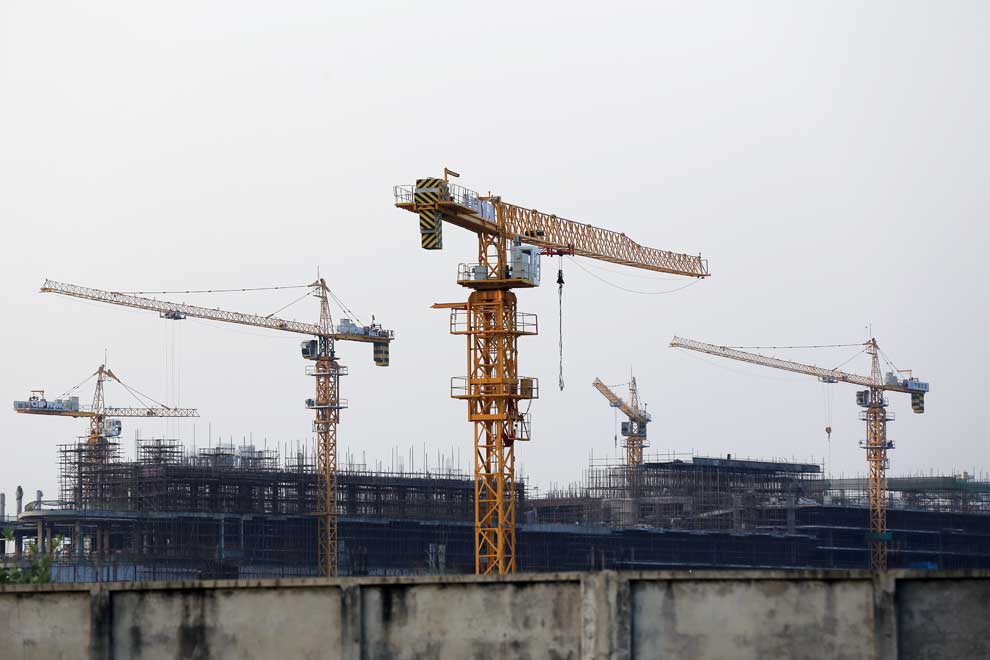
A building under constructions in Phnom Penh last year. Major Turkish business players are entertaining investment opportunities in the Cambodian construction, energy and mineral resources markets, according to the Cambodia Chamber of Commerce (CCC) on February 26. Hean Rangsey
Major Turkish business players are entertaining investment opportunities in the Cambodian construction, energy and mineral resources markets, according to the Cambodia Chamber of Commerce (CCC) on February 26.
This was brought up at a February 25 business reception hosted by Ankara-based Industrialist Businesswomen and Businessmen Confederation (SANKON) to welcome a CCC delegation to Turkey, the CDC said in a statement.
SANKON president Ferudun Cevahiroglu said that Turkish investors are eyeing Cambodia’s economic potential as well as cooperation in key areas where the two countries can effectively work together. He highlighted construction, energy and mineral resources as prime examples, according to the statement.
He suggested that the two institutions jointly brainstorm about a number of projects in high priority areas, after which SANKON could lead a business delegation to Cambodia to further analyse the possibility of cooperation and implementation of the proposed undertakings.
CCC vice-president Lim Heng encouraged the two institutions to jointly back developments, and asked Cevahiroglu to visit Cambodia and gauge the feasibility of cooperation on such projects.
Heng noted that preferential trade arrangements offered by the UK, EU and US, free trade agreements (FTA) with China and South Korea, along with the Regional Comprehensive Economic Partnership (RCEP), provide greater market access to Cambodian goods.
Trade between Cambodia and Turkey have remained fairly limited over the years, reaching just $87.6 million in 2020, according to the latest data from the UN International Trade Statistics Database (UNCOMTRADE) provided by online platform Trading Economics.
Cambodian imports from and exports to Turkey amounted to $18.80 million and $63.78 million, respectively. “Man-made staple fibres” were Cambodia’s top imports, reaching $6.04 million, while “articles of apparel, knit or crocheted” were the Kingdom’s main exports, amounting to $24.30 million.
Ung Dipola, director-general of the Ministry of Mines and Energy’s General Department of Mineral Resources, told The Post that he welcomes all parties who intend to plough money into what he sees as improved development of the Cambodian mining sector.
Underlining that the sector requires innovative technologies for sustainable development that is guided by environmental and socio-economic considerations, Dipola indicated a preference for larger companies with significant mining experience to enter the domestic market – with or without a local partner.
According to him, local companies and those from Australia, Canada, Japan, South Korea, China and India have invested in construction-oriented and metallic minerals in Cambodia.




















